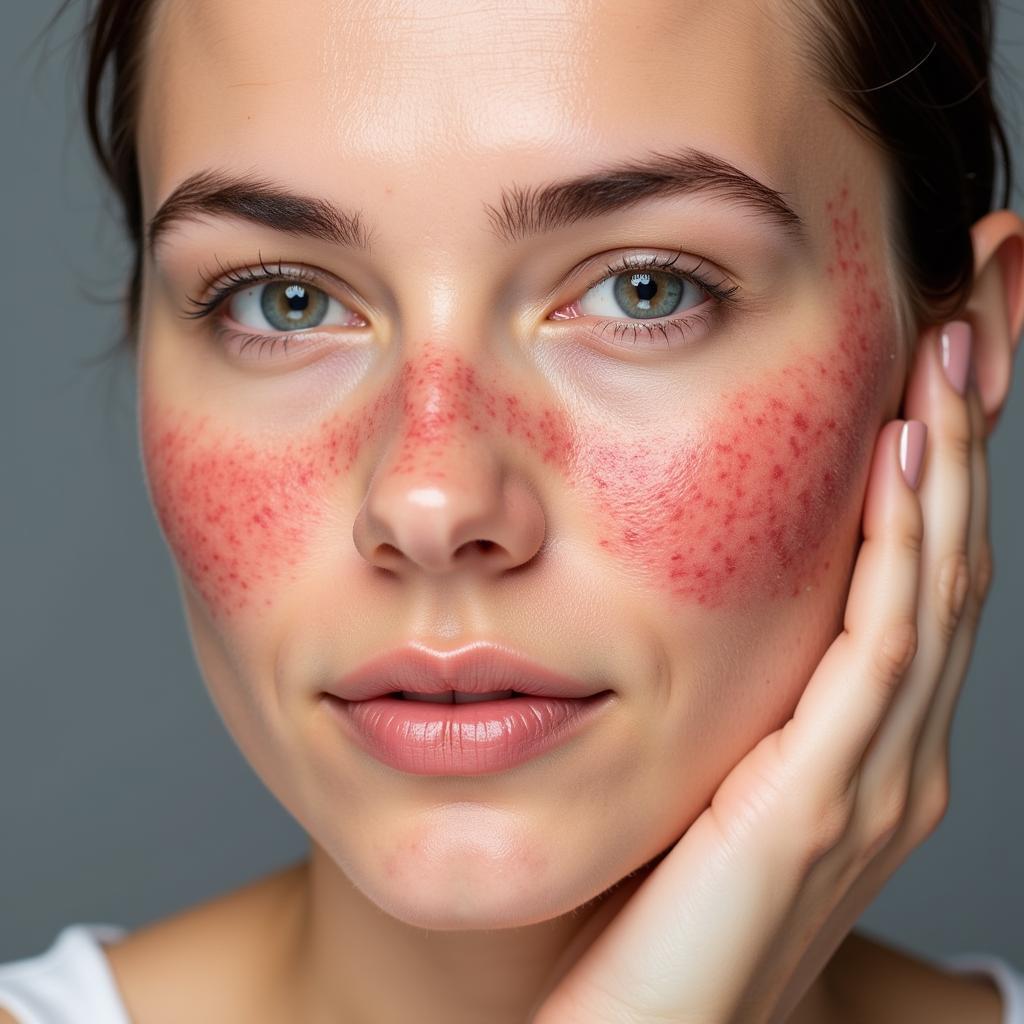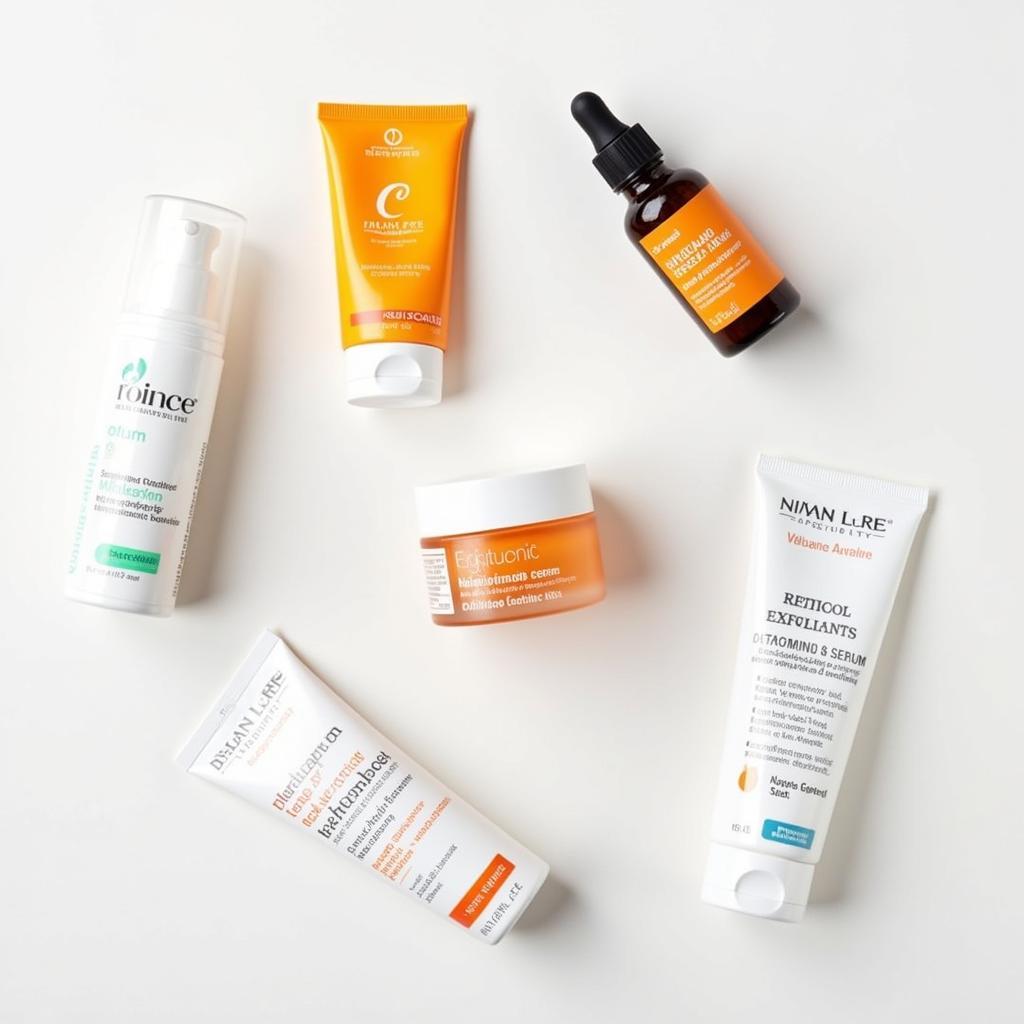Achieving an even skin tone is a common desire, and while perfectly uniform skin color is a myth, there are many ways to minimize the appearance of discoloration and achieve a more balanced complexion. Whether you’re dealing with hyperpigmentation, redness, or simply want to improve your overall skin tone, this comprehensive guide will provide you with effective strategies and practical tips to help you on your journey to more even-toned skin.
Understanding Skin Color Variations
Before diving into solutions, it’s essential to understand why skin color varies in the first place. Melanin, a pigment produced by cells called melanocytes, is the primary determinant of skin color. Factors influencing melanin production and skin tone include:
- Genetics: Your genetic makeup plays a significant role in determining your natural skin color and its tendency to develop unevenness.
- Sun Exposure: Ultraviolet (UV) radiation from the sun stimulates melanin production, leading to tanning or hyperpigmentation (dark spots).
- Hormonal Changes: Hormonal fluctuations, especially during pregnancy or menopause, can trigger melasma, a type of hyperpigmentation.
- Inflammation and Injury: Acne, eczema, and injuries can leave behind post-inflammatory hyperpigmentation (PIH) as the skin heals.
- Medications: Certain medications, such as some antibiotics and hormonal therapies, can also cause changes in skin pigmentation.
 Understanding Uneven Skin Tone Causes
Understanding Uneven Skin Tone Causes
Effective Strategies for Evening Skin Tone
Addressing uneven skin tone requires a multi-faceted approach that targets different aspects of pigmentation and skin health. Here are some proven strategies to incorporate into your skincare routine:
1. Sun Protection: Your First Line of Defense
Protecting your skin from the sun is paramount in preventing further discoloration and maintaining an even skin tone.
- Daily Sunscreen: Apply a broad-spectrum sunscreen with an SPF of 30 or higher every day, even on cloudy days.
- Seek Shade: Limit direct sun exposure, especially during peak hours (10 am to 4 pm).
- Protective Clothing: Wear wide-brimmed hats, sunglasses, and protective clothing when spending time outdoors.
2. Topical Treatments: Brightening and Exfoliating
Various topical skincare ingredients can help fade hyperpigmentation, reduce redness, and promote skin cell turnover for a more even complexion.
- Vitamin C: A potent antioxidant, vitamin C inhibits melanin production, brightens existing dark spots, and protects against free radical damage.
- Niacinamide: This multi-tasking ingredient reduces inflammation, controls oil production, minimizes the appearance of pores, and improves skin texture.
- Retinoids: Derived from vitamin A, retinoids boost cell turnover, fade hyperpigmentation, and stimulate collagen production, resulting in smoother, more even-toned skin.
- Kojic Acid: A natural skin-lightening agent, kojic acid inhibits melanin production and can help fade existing dark spots.
- Azelaic Acid: This ingredient reduces inflammation, redness, and hyperpigmentation while also having antibacterial properties.
- Chemical Exfoliants: AHAs (alpha hydroxy acids) like glycolic acid and lactic acid, and BHAs (beta hydroxy acids) like salicylic acid, gently exfoliate dead skin cells, revealing brighter, more even-toned skin underneath.
 Topical Skincare Products for Even Skin Tone
Topical Skincare Products for Even Skin Tone
3. Professional Treatments: Targeting Deeper Pigmentation
For more stubborn hyperpigmentation or uneven skin tone, professional treatments can provide targeted solutions.
- Chemical Peels: Chemical peels use higher concentrations of acids to exfoliate the skin’s surface layers, revealing brighter, more even-toned skin.
- Microdermabrasion: This treatment uses a minimally abrasive instrument to gently remove the outer layer of skin, promoting cell turnover and reducing the appearance of hyperpigmentation.
- Laser Therapy: Laser treatments target and break down melanin deposits, effectively fading hyperpigmentation and improving skin tone.
- Intense Pulsed Light (IPL): Similar to laser therapy, IPL uses light energy to target melanin and reduce the appearance of hyperpigmentation.
It’s essential to consult with a qualified dermatologist or aesthetician to determine the most appropriate and safe treatment options for your skin type and concerns.
Lifestyle Habits for Healthy, Even-Toned Skin
Beyond skincare products and treatments, certain lifestyle habits can contribute to healthier, more even-toned skin:
- Hydration: Drink plenty of water throughout the day to keep your skin hydrated and support healthy cell function.
- Balanced Diet: Consume a nutritious diet rich in fruits, vegetables, and antioxidants to nourish your skin from within.
- Stress Management: Chronic stress can negatively impact skin health. Find healthy ways to manage stress, such as exercise, meditation, or spending time in nature.
- Adequate Sleep: Aim for 7-9 hours of quality sleep each night to allow your skin time to repair and regenerate.
 Lifestyle Habits for Even Skin Tone
Lifestyle Habits for Even Skin Tone
Conclusion: Embracing Your Natural Beauty
While achieving perfectly uniform skin color is unrealistic, adopting a holistic approach that combines diligent sun protection, targeted skincare, and healthy lifestyle habits can significantly improve skin tone and texture. Embrace your natural beauty, and remember that consistency and patience are key when it comes to achieving long-lasting results.
If you have any concerns about your skin or need personalized advice, don’t hesitate to consult with a dermatologist or skincare professional. They can assess your individual needs and recommend the most effective treatment plan for you.
Frequently Asked Questions about Evening Skin Tone
1. How long does it take to even out skin tone?
The time it takes to see noticeable improvements in skin tone varies depending on the severity of the discoloration, skin type, and the chosen treatment approach. Generally, consistent skincare and sun protection practices can take several weeks to months to show visible results. Professional treatments may provide faster results but often require multiple sessions.
2. Can I use makeup to even out my skin tone while I’m waiting for skincare to work?
Yes, makeup can effectively camouflage uneven skin tone. Opt for color-correcting concealers to neutralize specific discolorations (green for redness, peach or orange for dark circles) and follow with a foundation that matches your skin tone.
3. Are there any home remedies for evening skin tone?
While some home remedies like aloe vera, honey, and yogurt masks may have soothing and hydrating benefits, they may not be as effective as targeted skincare ingredients or professional treatments in addressing significant discoloration.
4. Can I prevent uneven skin tone altogether?
While you can’t completely control factors like genetics and hormonal changes, diligent sun protection is the most effective way to prevent further discoloration and maintain an even skin tone.
5. What should I do if my uneven skin tone is causing me emotional distress?
It’s essential to remember that you’re not alone, and many people experience insecurities related to their skin. If your skin concerns are affecting your emotional well-being, reach out to a dermatologist or mental health professional for support and guidance.
Do you have other questions about achieving even skin tone or other skincare concerns?
Explore more helpful skincare tips and advice on our website:
For personalized recommendations and professional assistance, contact Color Box Hanoi:
Phone: 0373298888
Email: [email protected]
Address: 86 Cầu Giấy, Hà Nội
Our team of experts is available 24/7 to answer your questions and help you achieve your skincare goals.

